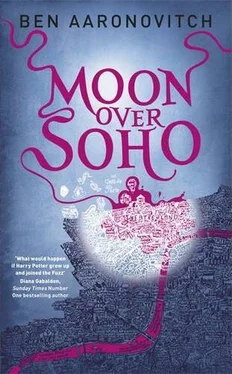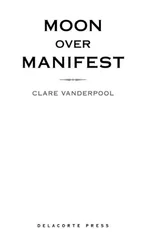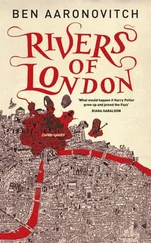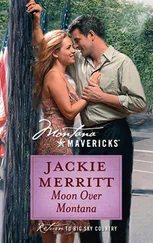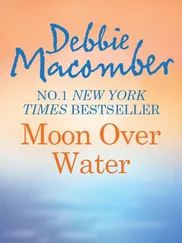“I was trying to do my duty as a sworn constable under the Human Rights Act,” I said. “To wit, the right to life under article two, which mandates that any use of force must be absolutely necessary and that any poor bastard we kill had better have it coming good and proper.”
“Assuming that you expand the definition of human being to vampires and chimeras,” said Nightingale.
“Then let’s get a judgment from the courts or better still have Parliament clarify the law,” I said. “But it’s not our place to make that decision, sir — is it? We’re just coppers.”
“If they were ugly, Peter, would you care half so much?” asked Nightingale. “There are some hideous things out there that can talk and reason and I wonder if you would be quite so quick to rush to their defense.”
“Maybe not,” I said. “But that just makes me shallow, it doesn’t make me wrong.”
“I estimate that among them Simone and her sisters have killed or mutilated almost two hundred and twenty people since 1941,” said Nightingale. “These people also had their human rights.”
“I’m saying that we just can’t pretend that the law doesn’t exist,” I said.
“Very well,” said Nightingale. “Let’s assume that we arrest them and, God knows how, try to convict them for …”
“Manslaughter by gross negligence, sir,” I said. “I think it would have been reasonable to expect them, after twenty years or so, to notice that they weren’t getting any older and that their boyfriends were regularly kicking the bucket.”
“They’re going to say they didn’t remember,” said Nightingale.
“I believe them, sir,” I said. “Which means they are suffering from a mental disorder as defined by the Mental Health Act of 1983 and since they are an obvious threat to members of the public we can detain them under section one thirty-five of the aforesaid act and remove them to a place of safety for care and evaluation.”
“And when they get hungry?” he asked. “Do you think starving them to death is more humane?”
“We don’t know they’d die,” I said. “Perhaps their metabolism will revert and if all else fails we can feed them. They were taking less than a victim a year — they can’t need that much.”
“And you want to spend the rest of your life doing that?”
“You can’t just off someone because it’s more convenient,” I said. “What did all your friends die for, all those names on the wall, what did they die for if not for that?”
He recoiled. “I don’t know what they died for,” he said. “I didn’t know then and I still don’t know now.”
“Well, I do,” I said. “Even if you’ve forgotten. They died because they thought there was a better way of doing things, even if they were still arguing about what it was.”
I saw it in his eyes — he wanted so badly to believe.
“It’s nothing that we can’t handle,” I said. “Are you really telling me that among you, me, and Dr. Walid we can’t work something out? Maybe I can find a way to feed them pocket calculators and mobile phones. Maybe if we can fix them, we can fix the others. Wouldn’t that be better than just dropping a phosphorous grenade on them — really? Besides, Molly might like the company.”
“You want to keep them in the Folly?”
“Initially,” I said. “Until we can figure out how far they can be trusted. Once we’ve got them stabilized we could set up a halfway house. Preferably somewhere where there’s no jazz scene.”
“This is mad,” said Nightingale.
“And they could take Toby for walks,” I said.
“Oh, well in that case, why don’t we throw our doors open to all and sundry,” he said, and I knew I had him.
“I don’t know, sir,” I said. “Wouldn’t a pilot project be more sensible in the first instance?”
“We still don’t know where they’ve gone,” he said.
“I know where they’ve gone.”
WE MOVED the Transit van to Great Windmill Street, parked next to the McDonald’s, and left the private army inside while we went to check out the staff entrance to the Café de Paris. “Why don’t we send Frank home?” I asked.
“We may need him if that bastard black magician turns up again,” he said.
“Are you saying you can’t take him?”
“Fortune favors the prepared,” said Nightingale.
The entrance door was ajar, which not only meant that Simone was probably inside but also that we had reasonable cause to enter the premises without a search warrant under section 17 of the Police and Criminal Evidence Act (1984). There was broken glass in the kitchen. They’d evidently helped themselves to a midnight snack. The door to the champagne cooler had been left open and the hum of its compressor followed us back out into the service corridor.
“They must be in the ballroom,” I said and Nightingale nodded. “Give me five minutes to calm them down and then come in.”
He nodded again. “Be careful,” he said.
The service corridor doglegged and ended in a door that led me out onto the landing that overlooked the length of the ballroom. Unlike the last time I’d visited, the tables had been laid out in an oval around the dance floor and covered in crisp white cloths.
I knew as soon as I saw them sitting at their old table, surprisingly small and situated at half past one in relation to the band. There was a trio of bottles arrayed on it — one each. I had a pit in my chest and a ringing in my ears but I made myself go down the stairs to check. They were still in the clothes they’d been wearing when they’d left, but they’d done their best with lipstick and mascara to make themselves look presentable. Later tests by Dr. Walid indicated that they’d done the deed with alcohol and phenobarbital, the formulation matching the empty tablet strips found neatly stowed in Peggy’s handbag.
Suicides are rarely pretty, but the sisters had managed to avoid slumping or lolling or dribbling vomit down their fronts. I think they would have been satisfied with the tableau they created — three bright young things caught just on the cusp of their futures. I was so angry I had to force myself to stop and breathe deeply before I could carry on.
Simone’s eyes were open. Her hair was loose around her shoulders and I had to brush it back so I could put my fingers on her throat. Her skin was only slightly cool, and the time of death was later determined to have been approximately twenty minutes before I’d arrived — about when I was discussing comparative ethics with Nightingale. This close to her, I could smell honeysuckle and brick dust. But the music, which I only now realized had been there all the time, had gone.
I didn’t kiss her or anything like that.
I didn’t want to contaminate the crime scene.
Chapter 14
I Woke Up This Morning
THIS IS how you get out of bed the next day. You push off your duvet, rotate your body, put your feet on the floor, and stand up. Then it’s have a wee, have a bath, get dressed, go downstairs, eat breakfast, talk to your boss, practice your forma , eat lunch, smack the shit out of the punching bag in the gym, shower, get dressed, get in the Ford Asbo, and head into town to make sure that your face is being seen. You do this because it is your job, because it’s necessary, and because, if you’re honest, you love it. Repeat this process until the bad dreams stop or you just get used to them — whichever comes first.
There was a coroner’s report on their deaths, which ruled that they had committed suicide and so the sisters won a brief moment of fame as a suicide pact. But nobody in the media was so interested that they did any investigation beyond that. Nightingale handled the follow-up inquiry with the aid of a couple of detective constables on loan from Westminster CID, one of them my favorite Somali ninja girl. They couldn’t be told that the victims were immortal jazz vampires, so it was down to me to take the story back to the war.
Читать дальше
